Re-activating tumour suppressors in cancer as a potential therapeutic avenue
Responsable de l’encadrement : Dr Mark Scott
E-mail: mark.scott@inserm.fr
Institut Cochin
Résumé du Projet de Stage
Our group works on the (dys)regulation of tumour suppressors. The PI3K/AKT pathway is one of the most frequently activated signalling pathways in human cancers. The design of small molecules to inhibit oncogenic kinases has provided the main approach for the development of anti-cancer therapeutics targeting this pathway. PTEN tumour suppressor, via its lipid phosphatase activity against PIP3 at the plasma membrane, acts as a brake on the PI3K/AKT pathway with consequences for cell proliferation, migration, and cell polarity. In addition to cancer-associated mutations impairing PTEN function, wild-type PTEN protein levels are often downregulated by non-genomic mechanisms leading to a defective brake on the PI3K/AKT pathway in cancer cells. This makes PTEN protein levels a potential biomarker parameter in clinical oncology, which can influence therapeutic choices. In addition, strategies to activate/restore PTEN are currently being explored to combat cancer. The development of novel tools to monitor and potentially alter PTEN cell signalling, is key for driving foundational and clinical research into PTEN regulation in normal and disease states such as cancer and PTEN Hamartoma Tumour Syndromes (PHTS).
Following two cutting edge high-throughput screens using PTEN as bait our group has isolated chemical biology and biomolecule tools to probe and modulate PTEN in cancer. To help us in our goals, we are using techniques such as custom-made BRET-based conformational and positional biosensors, CRISPR, live cell imaging, 3D cell culture systems and in ovo xenograft assays. We are looking for an M2 candidate to insert into these projects and continue on to a PhD. The M2 student will be supervised by an experienced senior student and Dr Mark Scott.
Dernières Publications en lien avec le projet :
-Blondel-Tepaz E, Leverve M, Paradis JS, Sokrat B, Kosic M, Saha K, Lima-Fernandes E, Zamborlini A, Poupon A, Gaboury L, Findlay J, Baillie GS, Enslen H, Bouvier M, Angers S, Marullo S and Scott MGH. The RanBP2/SUMO-RanGAP1 complex gates β-arrestin2 nuclear entry to regulate the Mdm2-p53 signalling axis. Oncogene 40: 2243-2257 (2021).
-Kotelevets L, Trifault B, Chastre E and Scott MGH. Posttranslational Regulation and Conformational Plasticity of PTEN. Cold Spring Harb Perspect Med Jul 1; 10(7): a036095 (2020).
-Javadi A, Deevi RK, Evergren E, Blondel-Tepaz E, Baillie GS, Scott MGH and Campbell FC. PTEN controls glandular morphogenesis through a juxtamembrane β-arrestin1/ARHGAP21 scaffolding complex. eLife Jul 27;6. pii: e24578 (2017).
-Lima-Fernandes E, Misticone S, Boularan C, Paradis JS, Enslen H, Roux PP, Bouvier M, Baillie GS, Marullo S and Scott MGH. A biosensor to monitor dynamic regulation and function of tumour suppressor PTEN in living cells. Nat Commun. 5:4431 (2014).
-Lima Fernandes E, Enslen H, Camand E, Kotelevets L, Boularan C, Achour L, Benmerah A, Pitcher JA, Chastre E, Etienne-Manneville S, Marullo S and Scott MGH. Distinct functional outputs of Tumor Suppressor PTEN signaling are controlled by dynamic association with b-arrestins. EMBO J 6; 30, 2557-2568. (2011). Highlights in EMBO J and Science Signaling.
Ce projet s’inscrit dans la perspective d’une thèse
si oui type de financement prévu : Bourse MESR/LCC
Ecole Doctorale de rattachement : BioSPC
Equipe d’Accueil : Receptor Signalling & Molecular Scaffolds
Intitulé de l’Unité : Institut Cochin, CNRS UMR8104, INSERM U1016
Nom du Responsable de l’Unité : Dr Florence Niedergang
Nom du Responsable de l’Équipe : Dr Stefano Marullo
Adresse : Institut Cochin, 27 rue du Fg St Jacques, 75014 Paris

